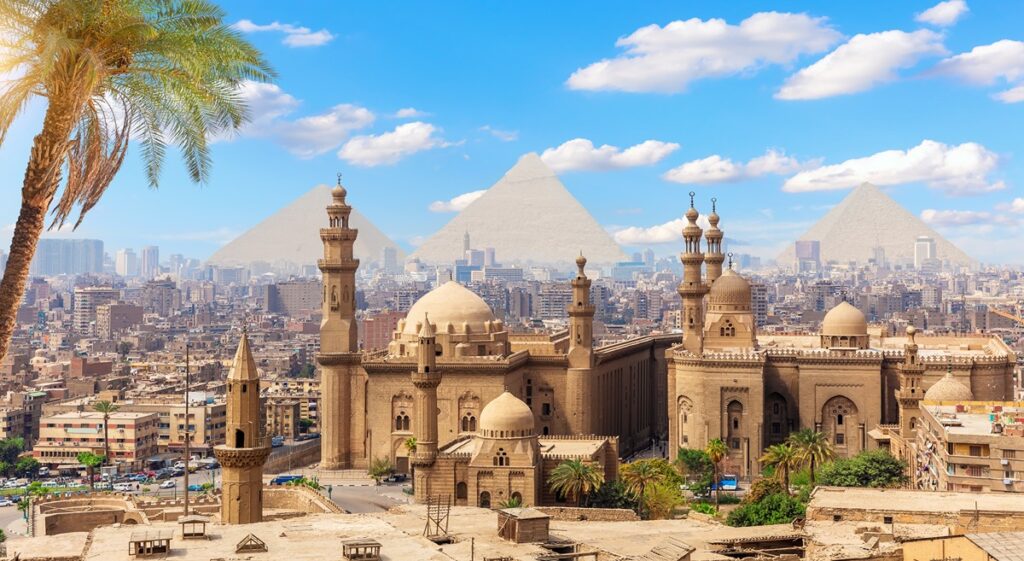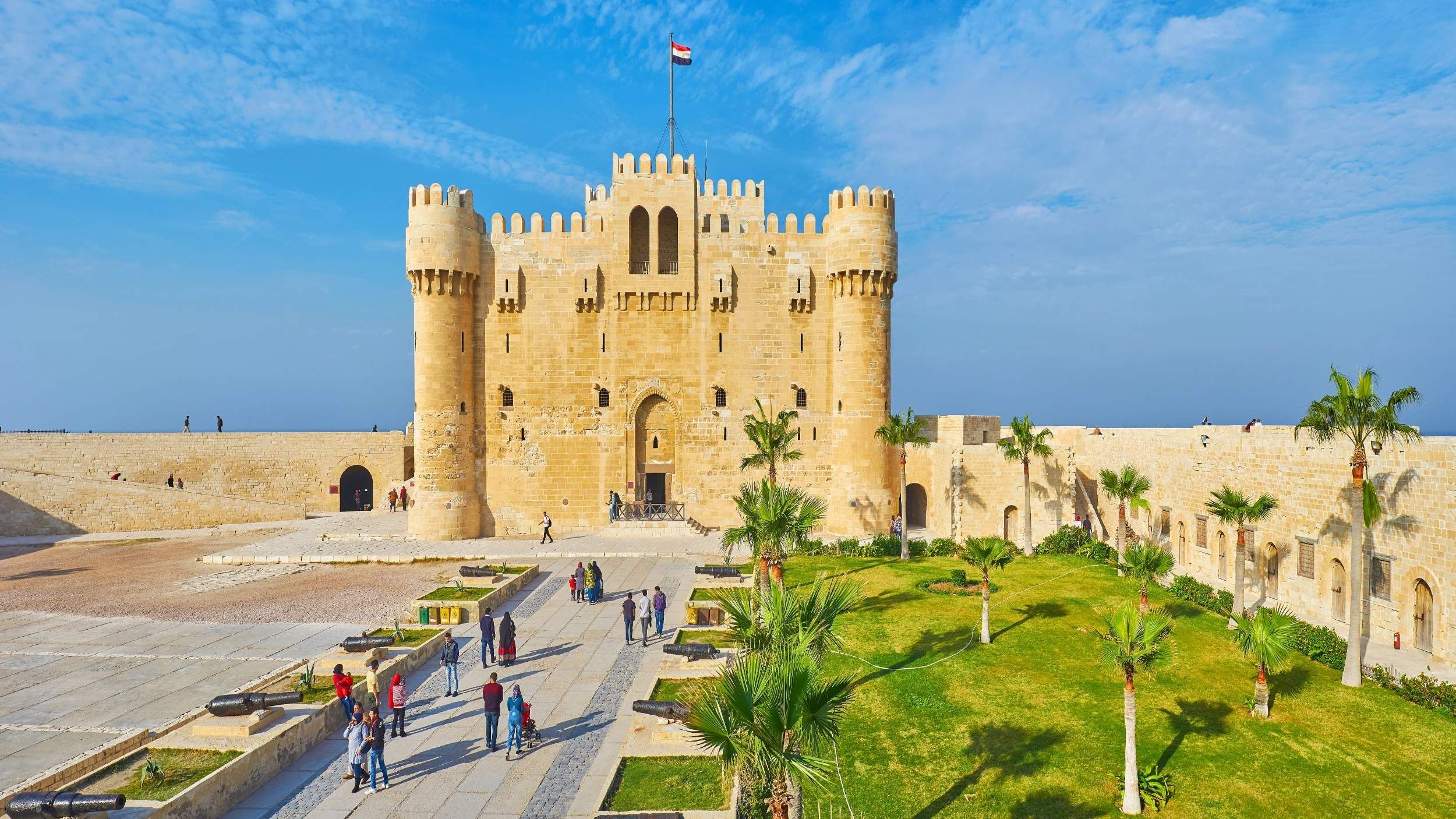
Attractions in Alexandria Egypt reveal a captivating blend of ancient wonders and Mediterranean charm. I’ve wandered these historic streets countless times, yet each visit uncovers new treasures hidden within this coastal gem. Past its well-known library and beach walkway, Alexandria has old ruins that tell stories from thousands of years ago.
Attractions in Alexandria Egypt: Essential Historical Wonders
I first discovered the magic of Alexandria’s historical sites during my initial visit five years ago. Unlike Cairo’s pyramids, these ruins tell stories of Greek, Roman and Egyptian civilisations intertwining across centuries. The city’s unique position as a gateway between worlds created an extraordinary cultural tapestry that remains visible today.
Walking through these archaeological marvels transports you instantly back through time. As one strolls through excavated sites, the ghostly echoes of ancient scholars and merchants seem to linger in the air. What struck me most was how seamlessly these historical treasures blend into the vibrant backdrop of modern Egyptian life.
You must see Pompey’s Pillar when checking out Alexandria’s old sites. This massive 30-metre red granite column stands as one of the largest ancient monoliths outside Rome. Despite its name, the pillar actually honours Emperor Diocletian, not Pompey. Surrounding this impressive structure lie sphinx statues and remnants of what was once a magnificent temple complex.
The nearby Serapeum offers another glimpse into Alexandria’s storied past. This ancient temple dedicated to the god Serapis played a crucial role in the city’s religious life. During my visit, I spent nearly three hours examining the site’s subterranean passages. These underground chambers once housed part of Alexandria’s legendary library collection before its destruction.
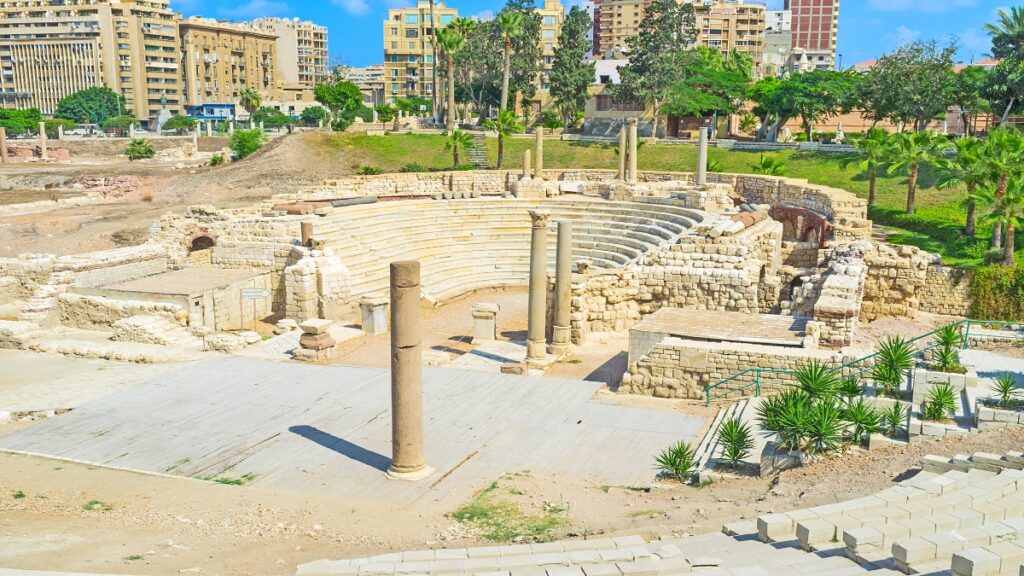
Historic Landmarks Showcasing Alexandria’s Rich Heritage
Just beyond the modern city centre lies the Roman Amphitheatre, a remarkably preserved structure from the 2nd century. Unlike many Egyptian attractions, this site wasn’t discovered until the 1960s when foundations were being dug for a government building. I recommend arriving early, around 8:00 AM, to avoid both crowds and midday heat while exploring the marble seating and mosaic floors.
While exploring these ancient ruins, local guides share fascinating insights about Alexandria’s golden age. The theatre’s acoustics remain surprisingly effective – stand in the centre and whisper to experience this ancient engineering marvel firsthand. After touring the amphitheatre, take time to examine the exhibition hall displaying artifacts recovered during excavations.
Many visitors skip the Villa of the Birds, but this secret spot has some of Alexandria’s best floor pictures. Located within the Kom el-Dikka archaeological site, this Roman-era house features incredibly detailed floor mosaics depicting various birds. I suggest spending at least 45 minutes here to fully appreciate the craftsmanship evident in these 1,700-year-old artistic works.

Exploring Ancient Egyptian Attractions in Alexandria
Deep beneath Alexandria’s bustling streets lie the Catacombs of Kom el-Shoqafa, perhaps the city’s most atmospheric historical site. These three-level burial chambers, carved from solid rock in the 2nd century AD, blend Egyptian, Greek and Roman artistic elements. The spiral staircase descending into darkness creates an eerie yet fascinating experience for visitors.
Upon entering these underground passages, you’ll notice the unique fusion of cultural influences evident throughout the necropolis. The main burial chamber displays Egyptian gods wearing Roman armour – a visual testament to Alexandria’s multicultural past. I suggest booking a guided tour to fully understand these symbolic representations and architectural features.
The descent into the catacombs requires navigating narrow passageways and occasionally ducking under low ceilings. The journey feels like stepping through a portal to another time. What impressed me most were the intricate reliefs showing scenes from Egyptian mythology alongside classical Greek motifs – a perfect illustration of Alexandria’s position at the crossroads of civilisations.
Unlike other tombs in Egypt, these catacombs remained active burial sites for both pagans and Christians over several centuries. The third level remains partially submerged in groundwater, giving visitors a tangible reminder of Alexandria’s geographical challenges. I recommend allocating at least two hours to properly explore all accessible chambers and appreciate their historical significance.
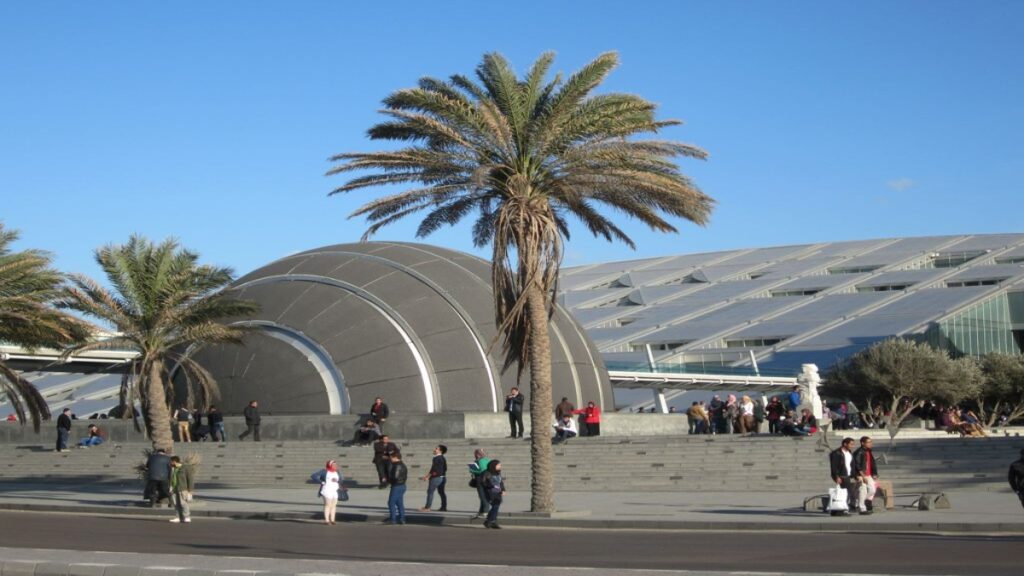
Alexandria’s Cultural Heritage and Unmissable Sites
The crown jewel of modern Alexandria must be the Bibliotheca Alexandrina, built to honour the city’s ancient library. This architectural masterpiece houses over eight million books alongside multiple museums and exhibition spaces. The main reading room’s sloping roof, designed to resemble a sundial, creates a mesmerising play of light throughout the day.
Beyond its impressive book collection, the library complex contains specialised museums worth exploring. I particularly enjoyed the Antiquities Museum displaying artifacts recovered from underwater excavations in Alexandria’s harbour. Plan to spend at least half a day here – the building itself merits careful examination beyond its contents.
One cannot discuss attractions in Alexandria Egypt without mentioning the Qaitbay Citadel. Built in 1480 on the site of the legendary Lighthouse of Alexandria, this fortress offers breathtaking Mediterranean views. The big stone walls have lasted through hundreds of years of attacks and bad weather from the sea. Arriving around 4:00 PM provides the best lighting for photographs of both the citadel and surrounding coastline.
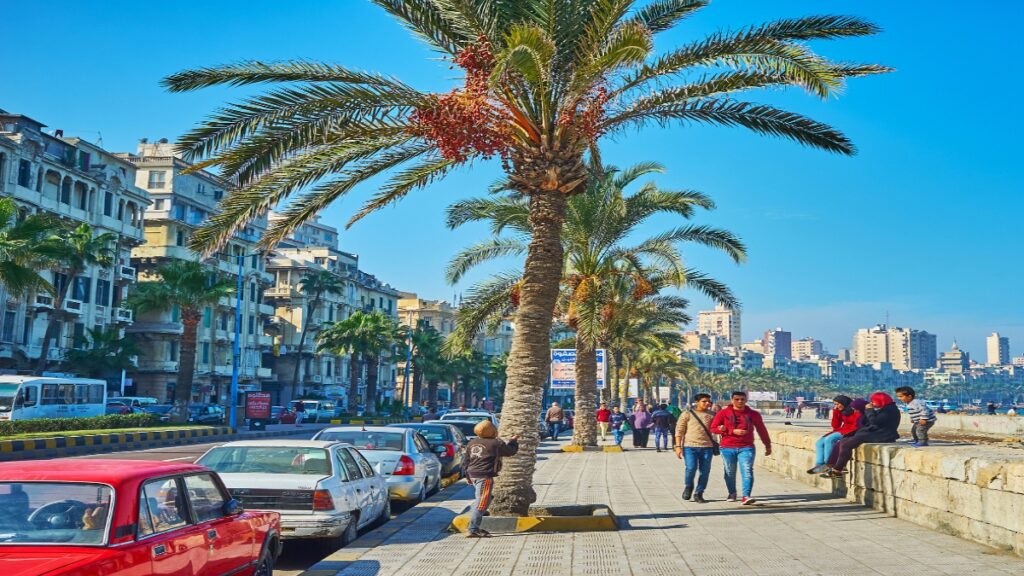
Unmissable Attractions in Alexandria Egypt Today
My favourite morning begins with a sunrise walk along the Corniche, Alexandria’s waterfront promenade stretching 15 kilometres along the Mediterranean. Unlike the ancient sites, this modern attraction offers glimpses into everyday Egyptian life. Locals fishing, families strolling, and street vendors selling everything from fresh juice to roasted sweet potatoes create a vibrant atmosphere.
The Corniche transforms throughout the day, shifting from a peaceful morning exercise spot to a bustling evening social hub. Around sunset, the promenade fills with Alexandrians enjoying the cooling sea breeze. I recommend renting a bicycle to cover more ground – several rental shops operate near Saad Zaghloul Square where you can secure a bike for approximately three hours of exploration.
Few experiences compare to watching fishermen work along the Eastern Harbour while boats bob gently in the background. This picturesque scene, virtually unchanged for centuries, provides a perfect counterpoint to Alexandria’s archaeological attractions. After your walk, consider stopping at one of the seaside cafes for mint tea and people-watching – El-Horreya Cafe offers particularly good viewing spots.
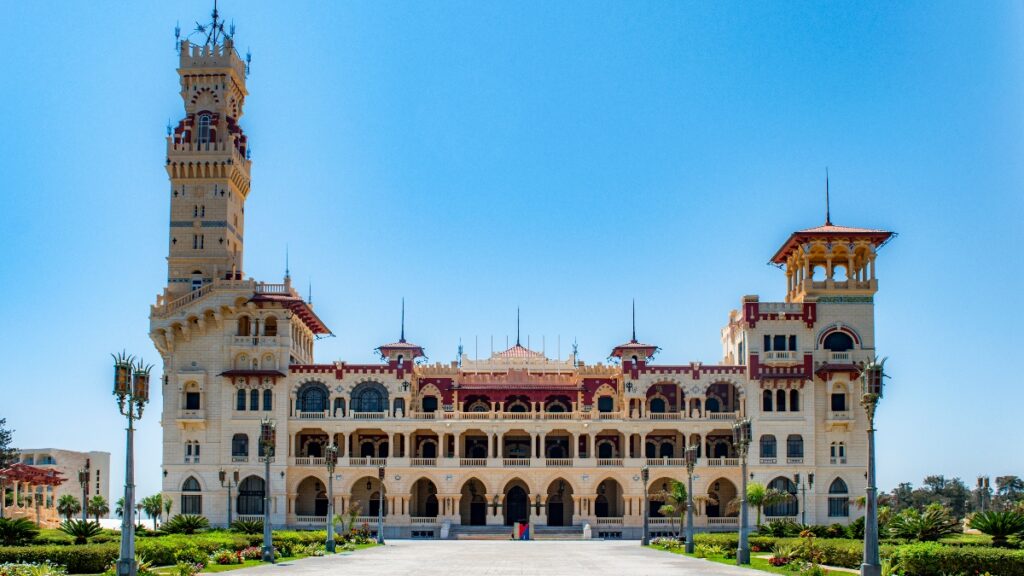
Alexandria’s Modern Cultural Experiences
The Montaza Palace gardens offer a refreshing escape from Alexandria’s urban energy. These expansive grounds surrounding a former royal residence combine manicured gardens with Mediterranean beaches. I suggest visiting on weekday mornings when the gardens are particularly peaceful and perfect for leisurely exploration.
The palace complex showcases an eclectic architectural style blending Ottoman and Florentine influences. Although the palace interior remains closed to visitors, the surrounding gardens and beaches provide ample opportunities for relaxation. Pack a picnic lunch to enjoy beneath the towering palm trees while gazing out across the turquoise waters.
Art fans should visit the Alexandria National Museum, found in a fixed-up Italian-style big house. Unlike larger Egyptian museums, this collection focuses specifically on Alexandria’s history through carefully curated exhibits spanning ancient to modern times. The chronological organisation helps visitors understand the city’s evolution over millennia.
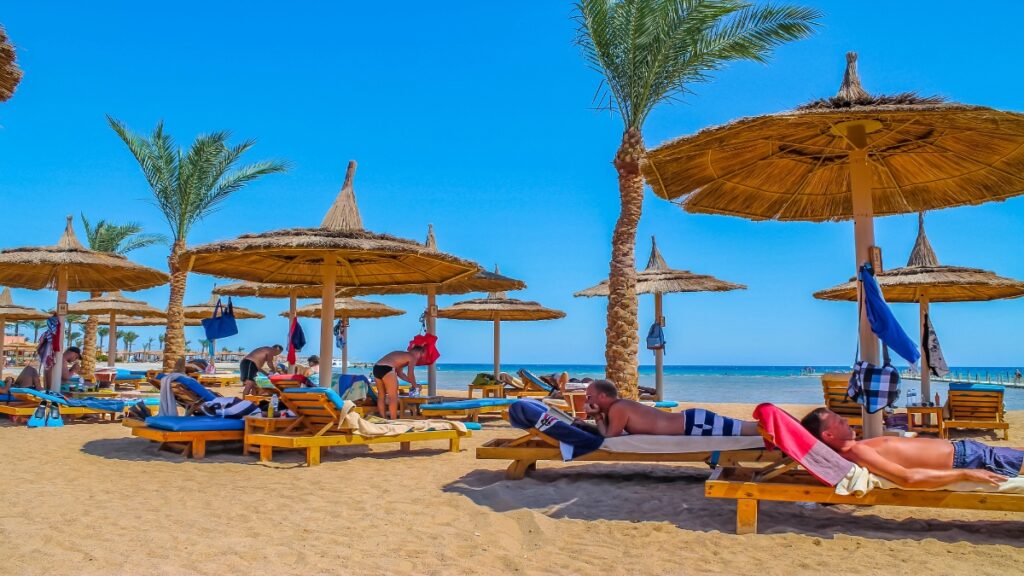
Best Time to Visit Attractions in Alexandria Egypt
Spring visitors enjoy ideal conditions for exploring Alexandria’s outdoor archaeological sites. Between March and May, temperatures hover pleasantly around 20-25°C with minimal rainfall. This comfortable weather allows for extended walking tours without the exhaustion that summer’s heat can bring.
The shoulder seasons also bring fewer tourist crowds compared to peak winter months. During my April visit, I navigated even popular sites like Qaitbay Citadel without long queues or crowded viewing areas. This timing enabled more intimate experiences and better photo opportunities at major attractions in Alexandria Egypt.
Autumn offers another excellent window for visiting between September and November. As summer crowds disperse, the city regains its more authentic atmosphere while maintaining warm enough temperatures for enjoyable beach visits. The Mediterranean remains swimmable well into October, providing a perfect complement to cultural explorations.
Alexandria’s Seasonal Tourism Highlights
Winter brings surprisingly mild conditions to Alexandria compared to European destinations. Daytime temperatures typically reach 18-20°C from December through February, making archaeological explorations comfortable if somewhat cooler. During these months, I suggest focusing on indoor attractions like the Bibliotheca Alexandrina during early morning hours, saving outdoor sites for midday warmth.
This winter period coincides with peak domestic tourism, particularly around holidays. Egyptian families often visit Alexandria during school breaks, creating a lively atmosphere along the Corniche and at popular attractions. While some might prefer quieter experiences, I found this season offered valuable insights into contemporary Egyptian culture alongside historical explorations.
Summer temperatures sometimes reach uncomfortable levels between June and August, with humidity adding to the challenge. During these months, consider adapting your schedule to visit outdoor sites during early morning hours. By 9:00 AM, the heat often becomes noticeable, making indoor museums and seaside activities more appealing alternatives.

Planning Your Egyptian Heritage Experience
I strongly recommend allocating at least three full days to properly experience Alexandria’s diverse attractions. This timeframe allows for unhurried exploration of major archaeological sites while leaving room for cultural experiences and seaside relaxation. My ideal itinerary balances morning visits to historical sites with afternoon museum explorations and evening Corniche strolls.
Comfortable walking shoes prove essential given Alexandria’s hilly terrain and archaeological sites. The city’s Mediterranean position means weather can change quickly – even in summer, evenings might turn surprisingly breezy. Carrying layers allows flexibility as temperatures shift throughout the day across different areas of the city.
First-time visitors should consider hiring a knowledgeable local guide, at least for major archaeological sites. The contextual information these experts provide transforms what might otherwise seem like scattered ruins into coherent historical narratives. Many guides offer half-day tours focused on specific historical periods or areas of interest within the city.
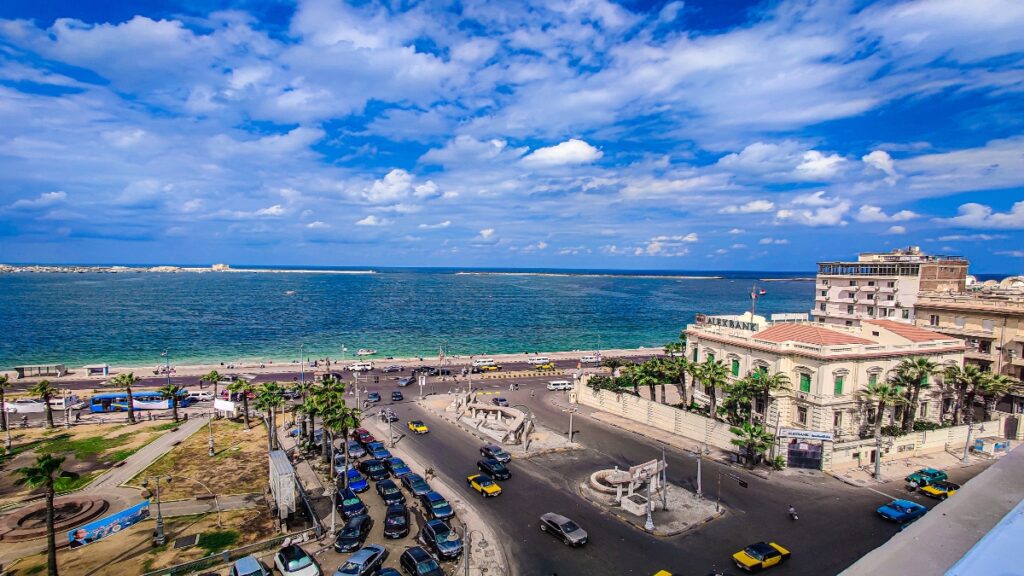
Popular Districts for Attractions in Alexandria Egypt
The heart of Alexandria’s historical offerings clusters around the downtown area near Raml Station. This district houses several museums alongside colonial architecture reflecting the city’s cosmopolitan past. Within walking distance, you’ll discover antique shops, traditional coffee houses, and buildings bearing Italian, French, and Greek influences.
Wandering these central streets reveals Alexandria’s unique character, distinct from other Egyptian cities. Unlike Cairo’s frenetic energy, Alexandria maintains a more Mediterranean pace. The grid-like street pattern makes navigation relatively straightforward, though prepared for occasional diversions as new archaeological discoveries frequently alter traffic patterns.
History enthusiasts gravitate toward the eastern neighbourhoods where ancient sites concentrate. The Kom el-Dikka area, home to the Roman Amphitheatre and Villa of the Birds, deserves at least half a day for thorough exploration. Nearby, the Catacombs of Kom el-Shoqafa offer dramatic contrast with their subterranean passageways and burial chambers.
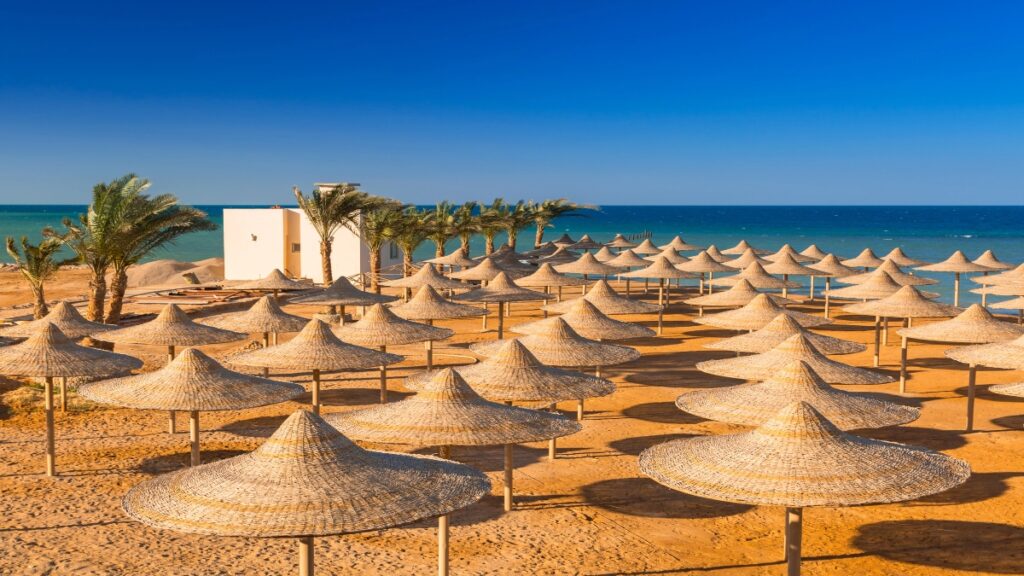
Alexandria’s Waterfront Destinations and Viewpoints
The Stanley Beach area presents a more modern face of Alexandria, with its distinctive bridge and upscale cafes along the Corniche. This neighbourhood attracts locals and visitors alike, especially during summer evenings when sea breezes provide relief from daytime heat. I particularly enjoy the stretch between Stanley and Glim Bay for sunset walks with spectacular Mediterranean views.
While exploring Alexandria’s waterfront, take time to observe fishing techniques virtually unchanged for generations. Early mornings reveal fishermen casting nets from small boats or directly from harbour walls. These timeless scenes provide perfect photographic opportunities against the backdrop of Alexandria’s evolving skyline.
Bird enthusiasts should consider visiting Lake Mariout on Alexandria’s southern edge. This brackish lagoon attracts diverse waterfowl species, offering a natural complement to the city’s archaeological attractions. Morning hours yield the best wildlife viewing opportunities, though access points remain limited – arranging transportation through your accommodation simplifies logistics.
Navigating Tourist Sites in Alexandria
Getting around Alexandria is easy using trams, taxis and your own feet. The historic yellow tram, operating since 1860, offers both practical transportation and nostalgic experience along the Corniche. For approximately three Egyptian pounds, you can travel the length of the waterfront while observing local life from these charming vintage carriages.
The city’s relatively compact central districts make walking viable for many major attractions in Alexandria Egypt. I found wandering between sites offered unexpected discoveries – hidden architectural details, local markets, and street food vendors rarely mentioned in guidebooks. When distances require motorized transport, blue-and-white taxis provide convenient if sometimes adventurous options.
Allow extra time when travelling between attractions, as Alexandria’s traffic can become congested, particularly along coastal routes during weekends. For visits to outlying sites like Montaza Palace or Abu Mena, consider arranging transportation through your accommodation or hiring a driver for the day to maximize efficiency.


